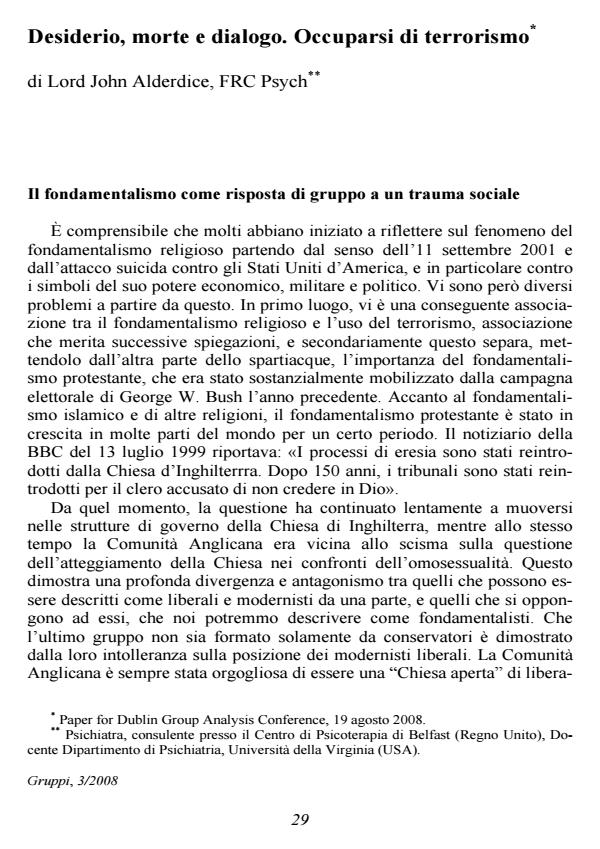Desiderio, morte e dialogo. Occuparsi di terrorismo
Journal title GRUPPI
Author/s Lord John Alderdice
Publishing Year 2009 Issue 2008/3
Language Italian Pages 25 P. 29-53 File size 381 KB
DOI 10.3280/GRU2008-003003
DOI is like a bar code for intellectual property: to have more infomation
click here
Below, you can see the article first page
If you want to buy this article in PDF format, you can do it, following the instructions to buy download credits

FrancoAngeli is member of Publishers International Linking Association, Inc (PILA), a not-for-profit association which run the CrossRef service enabling links to and from online scholarly content.
Desire, Death and Dialogue. Dealing with Terrorism - Enduring, violent, social and political conflicts have often been interpreted as rational actor consequences resulting from socio-economic inequity or the struggle for power. The advent of global jihadi terrorism has been presented as a fight between good and evil - each side."Islamist" and "Western", characterising the enemy in similar opposing terms. This has recently been popularized as a clash of religions, cultures or civilizations with an analysis of the problem in terms of Islamic fundamentalism leading to political radicalization and resultant anti-western terrorism. The Author challenges these analyses using a model of societal development and dissolution in the face of threat. The model is based on an evolutionary approach which owes much to the psychoanalytical and psychobiological approaches which have come from working with mentally ill individuals, but applies these ideas to breakdown in the organism which is the larger society. His approach is particularly unusual because it is based on practical political applications through conflict resolution processes in different parts of the world.
Key words: fundamentalism, radicalization, terrorism, mimesis, psychoanalysis, peace process.
Parole chiave: fondamentalismo, radicalizzazione, terrorismo, imitazione, psicoanalisi, processi di pace
Lord John Alderdice, Desiderio, morte e dialogo. Occuparsi di terrorismo in "GRUPPI" 3/2008, pp 29-53, DOI: 10.3280/GRU2008-003003